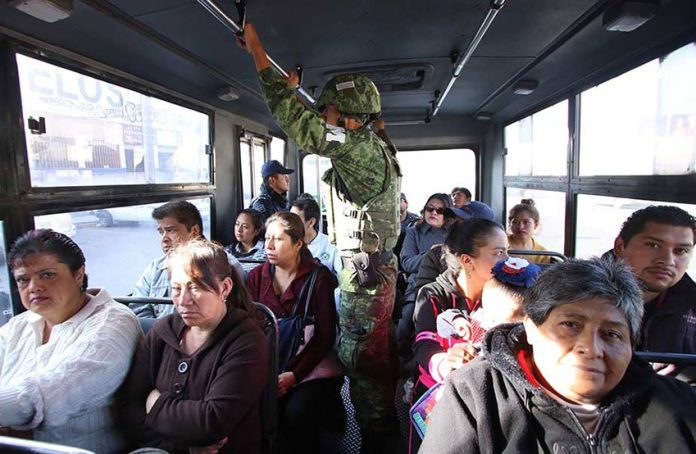Mexico’s new security secretary has identified six states as insecurity hot spots: Puebla, Nuevo León, Jalisco, Guanajuato, Veracruz and Tamaulipas.
“There are focal points of violence that have been sustained over time, they already have a long history [of violence] and, of course, we’re going to face up to them. The conditions in which we have received the country isn’t a secret to anyone,” Alfonso Durazo told reporters yesterday.
“A range of indicators place us, unfortunately, among the most insecure countries in the world and that speaks to the challenge that all of us who participate in the realm of public security in the country face,” he added.
Durazo said that there is a range of factors contributing to the violence in the states identified as insecurity hot spots, although he singled out petroleum theft as a particular problem.
He said the new government will present an anti-fuel theft strategy next week “so that citizens know the way in which we are going to confront this challenge.”
Of the six states cited by the new secretary, only Guanajuato is among the top 10 most violent in 2018 in terms of its homicide rate, ranking fifth.
On Tuesday this week, there were at least 17 homicides in the state, most of which are believed to be related to fuel theft.
Durazo said that a de facto national guard – whose creation was proposed by the new government as a central element of its national security plan – started operations on December 1.
“We already have almost 50,000 elements spread out permanently in 150 regions of the country: 30,000 or 35,000 military police, around 8,000 navy police or a little less and the rest are Federal Police . . .” he said.
Durazo explained that the federal forces are deployed in every state in the country but the number of regions covered by a security unit had to be reduced to 150 from the 265 regions that had been drawn up because of limitations in the number of elements the government has at its disposal.
Units operating in states with coastlines are under the control of a naval commander while the army is in charge of those deployed to inland states, he added.
Durazo also said that security “personnel who are assigned to the national guard will retain the [same] income, seniority and rights” as they had in the force they originally belonged to, adding that “we will gradually improve the socioeconomic position of all of them through combatting corruption and the savings we can generate with the austerity program.”
The government’s proposal to create the new security force was criticized by a range of non-government organizations who argued that it would perpetuate the failed militarized crime-fighting strategy that was first implemented by former president Felipe Calderón in 2006.
More than 200,000 people have been murdered in the 12 years since the so-called war on drugs began and armed forces have been accused of a range of human rights violations including extrajudicial killings, enforced disappearances and torture.
Human Rights Watch called the government’s security strategy a “colossal mistake” and “potentially disastrous.”
Interior Secretary Olga Sánchez Cordero said yesterday that President López Obrador would wait to see what Congress and state legislatures say about the national guard plan before moving ahead with its formal creation.
Prior to taking office, the new president said the proposal would be put to a public consultation set tentatively for March.
The security challenges inherited by the new government are enormous.
With more than 31,000 homicides, 2017 was the most violent year in at least two decades and record-breaking levels of murders have continued this year.
López Obrador, who took office Saturday, is addressing the security situation in daily press conferences held at 7:00am at the National Palace.
Earlier this week, he said the government will have an “information system” in place by next week that “allows us to know how many homicides are committed in the country every day” in order to take specific actions in specific places.
“It’s incredible how such a serious problem, as the regrettable problem of insecurity and violence is, wasn’t monitored daily . . . That, I think, is a reflection of the problem . . . Imagine a government which has no exact up-to-date information.”
Source: Milenio (sp), El Economista (sp)
